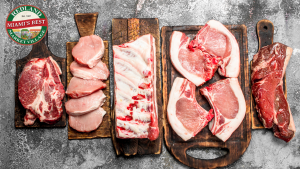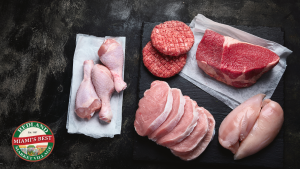Cooking over an open flame on a grill in the backyard requires cooks keep watchful eyes on their grills. Charcoal grill devotees must stay nearby as flames grow before settling down as the coals turn gray. Cooks using charcoal grills should also make sure children or pets don’t accidentally run into the grill, potentially knocking it over and creating a fire and/or injury hazard. But even gas grill users must be mindful of safety, checking hoses for leaks before igniting fires and then staying within arm’s length of the grill to make sure everything is working smoothly.
Fire safety is essential when grilling outdoors, but cooks also must prioritize safe handling of raw meats. The U.S. Food and Drug Administration has established a host of guidelines to promote safe grilling and the safe consumption of grilled foods and offers the following recommendations to cooks planning to grill raw meats.
· Separate foods when purchasing them. The grocery store might be far away from home, but safe grilling begins at the checkout counter. The FDA recommends consumers separate raw meat, poultry, seafood, and eggs from other foods in their shopping carts and grocery bags to prevent cross-contamination. Keep these items separate when storing them in the refrigerator as well.

· Use separate cutting boards. Another way to prevent cross-contamination is to use separate cutting boards. Designate one cutting board for produce and another for raw meat, poultry, and seafood. If grilling more than one type of raw food at once, thoroughly clean the cutting board with soap and hot water between uses.
· Keep separate plates for precooked foods and cooked foods. The FDA notes that cooked foods should never be placed on plates that previously held raw meat, poultry, seafood, or eggs unless the plate has been washed in hot, soapy water. Bacteria from the juices of raw meat can linger on an uncooked plate, compromising the safety of cooked foods placed on unwashed, previously used plates.

· Discard marinades once you start cooking. Marinades used on raw foods should be discarded once the foods are removed from the marinade and placed on the grill. Repurposing marinades to use as sauces can increase the risk for bacterial infections. However, the FDA notes that marinades used on raw foods can be repurposed so long as they are boiled before reusing them.
When grilling raw meat, poultry, seafood, or other foods, cooks must be careful to prevent cross-contamination that can lead to bacterial infections.



